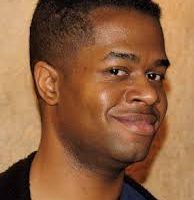Four tips to help sharpen our perspective
Some people revel in an opportunity to showcase their talents. During office staff meetings, a few people love the sound of their own voice. There are exceptions to every situation, including me.
What do you think?
I want to avoid answering this question like the plague. For the most part, I welcome the opportunity to prove myself. Yet, I wrestle with the appropriate response when my brain cells are uncooperative. For most part, if I did not know the answer, I can always find the information. The phrase “I do not know” is unacceptable. Eventually, I develop a compromise based on my best judgment. The response “I will get back to you” is acceptable during a meeting and good for my ego.
Discernment is the ability to make a good judgment.
Why is this important? Life demands this in order to succeed. We need to attune to the substantive and discard what is irrelevant. Discernment will help us develop a skilled response to life’s trials and tribulations.
In order to thrive, we must both discern and reflect upon what is going on in life.
When looking for the answers, within or outside ourselves, there are no easy choices. Fortunately, none of us are alone. The following are a few suggestions to help sharpen our perspective. This is all a work in progress.
1. Pause
This is a difficult step. I always want to contribute my ideas to any discussion and the enthusiasm I have may get the best of me. I want to make my thoughts clear. We have to be vigilant regarding this mentality. There is nothing wrong with speaking your mind.
However, we should ask ourselves, “What is the most productive way to address the issue?” before adding our two cents.
We have to consider if what we have to say is valuable. The idea is to cultivate a careful and thoughtful response.
2. Listen
There is a difference between hearing and listening. The ears record the information, but sometimes the mind lacks the ability to recall what is important. We have to engage in active listening in every part of our lives. Sometimes, I interrupt someone during a conversation. The intention is not meant to be rude or inconsiderate. Unfortunately, in this context my actions will override my intention.
Active listening requires a conscious effort to understand.
Why do we need active listening? Listening is important for several reasons. We listen for information, to connect with our loved ones and to learn. Listening allows you to cull through the craziness and incorporate important insight. Active listening is fundamental to discernment.
3. Focus
Are you paying attention? This skill requires that you give all your time and attention to the goal at hand. Actually, this principle sounds simple enough if we locked ourselves in a sound proof office, few of us have access to such a valuable commodity.
Our attention spans have been significantly reduced thanks to television. Despite this, the world demands that individuals multitask. Occasionally, multitasking is when an individual makes several mistakes simultaneously. Families are constantly juggling different schedules. The workplace demands that staff members juggle multiple projects.
Focus demands discipline, attention and the ability to tune out the distractions. We have to develop our own cone of silence. The most accomplished minds have enough self control to be productive anywhere. They have mastered the ability to tune inward to move forward.
For the rest of us, a quiet space such as a public library or even a coffee house can provide the appropriate environment. Some even use music to help focus the mind. Both classical music and jazz help individuals concentrate. When this happens, there is no room left in the brain for obstacles or distractions. There is no past and the future has not arrived. The mind is engaged in the moment.
4. Engage
John Wooden is famous for saying, “Failing to prepare is preparing to fail.” As Americans, we all value the importance of hard work. Wooden’s advice reminds me of the story of John Henry. Henry used his legendary physical prowess to defeat the steam powered hammer in a contest.
We can all admire John Henry’s herculean strength. Yet, we cannot sustain that level of effort in our lives. Mindful engagement demands we adapt to life’s challenges and not just power through each problem.
Discernment allows us to balance between effort and intellect.
The wisest people in our culture always seek advice whenever they are stuck on a problem. The most intelligent individuals realize that they do not always have the answers. The most important step in this process is asking questions. This will help aid the discernment process by sorting through our priorities.
In obtaining feedback, we can all re-adjust our course and develop a solution to the issues facing us. We all make mistakes. The wisest individuals are learning from their mistakes and gaining wisdom from their experiences.
In life, we are always looking for the best way to move forward. The discernment process allows us to sharpen our perspective on life in the most comprehensive way. This approach will allow us to take adversity and turn it into an advantage. Also, we can take the time we have and get the most out of life. I will have to remember this when my desk is stacked with papers.
We pause, listen, focus and engage, after that there is nothing else we can do. The rest of what happens is in God’s hands.











Read 1 comment and reply